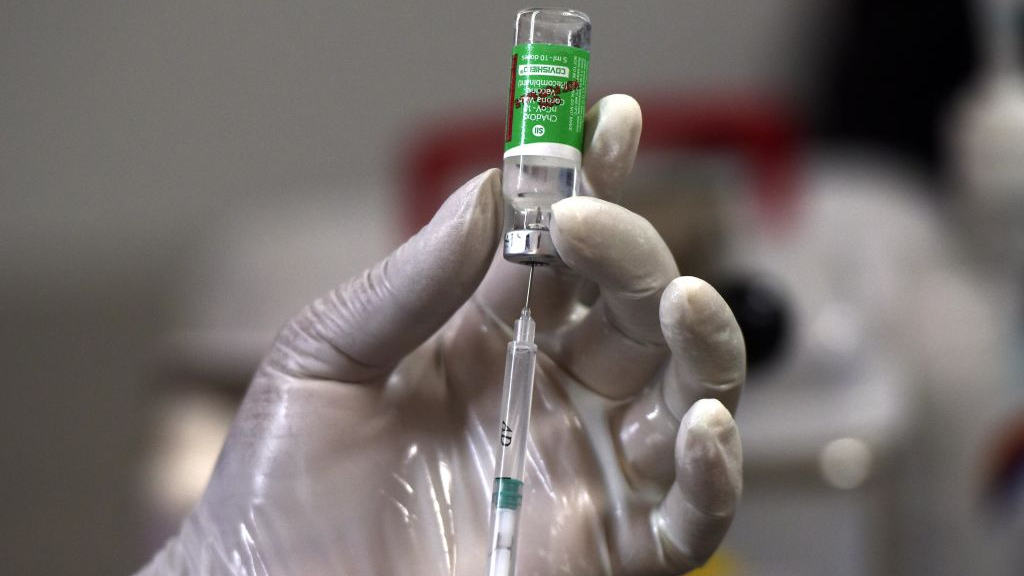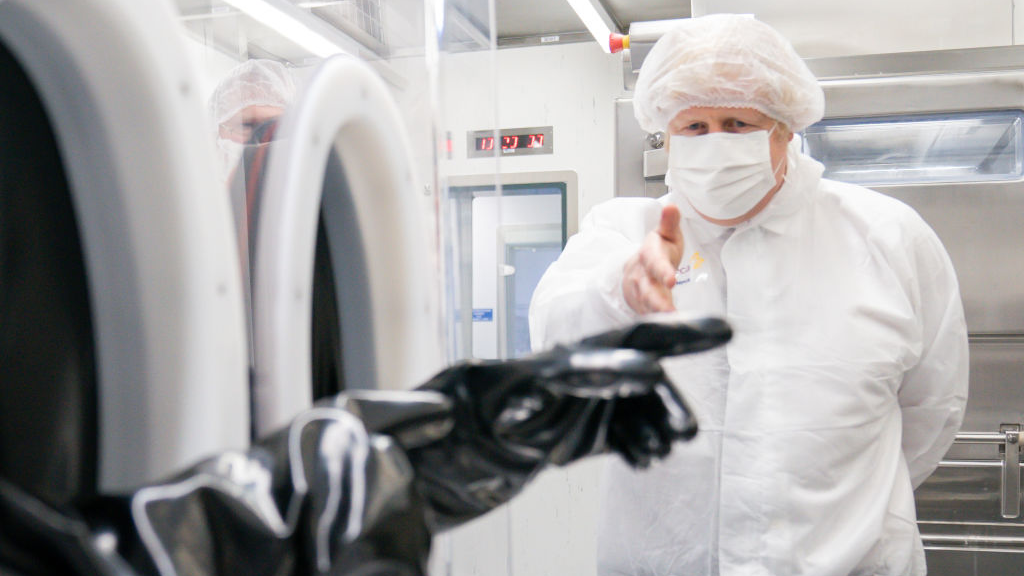
A health worker preparing a jab from a vial of the Covishield COVID-19 vaccine at a vaccination camp organized by IMT Manesar Association at their office at Manesar, in Gurugram, India, April 7, 2021. /Getty
A health worker preparing a jab from a vial of the Covishield COVID-19 vaccine at a vaccination camp organized by IMT Manesar Association at their office at Manesar, in Gurugram, India, April 7, 2021. /Getty
Editor's note: Haider Rifaat is a writer for the South China Morning Post, Arabian Moda magazine, Good Times magazine and OK! Pakistan. The article reflects the author's opinions, and not necessarily the views of CGTN.
Millions around the world are making a conscious choice to get vaccinated against COVID-19. Major pharmaceutical companies are fast-tracking vaccination efforts to reach as many people as possible. While COVID-19 vaccines have sparked high hopes for scientists and the world population at large, vaccine skeptics appear to be divided.
COVID-19 in particular has had varying versions of a vaccine unlike any other pandemic we have witnessed in the recent past. These range from Sinovac, Sputnik V, AstraZeneca and Pfizer among others with varied efficacy rates.
Several reported incidents have shaped an anti-vaccine sentiment around the world that discourages people from getting vaccinated. According to sources, 79 cases of blood clots and 19 deaths have occurred in the UK recently, and are attributable to AstraZeneca. As astounding as it sounds, it is disgraceful to downplay deaths from AstraZeneca and the supposed link it has with the development of blood clots.
According to BBC on April 7, more than 31.6 million people in the UK have already been administered the first shot of AstraZeneca vaccine while 5.4 million have received the second dose. Speaking at a press conference, Wei Shen Lim of the Joint Committee on Vaccination and Immunization said, "Adults who are aged 18 to 29 years old who do not have an underlying health condition should be offered an alternative COVID-19 vaccine in preference to the AstraZeneca vaccine, where such an alternative vaccine is available."

UK Prime Minister Boris Johnson wearing personal protective equipment (PPE) visits AstraZeneca in Macclesfield, England, April 6, 2021. /Getty
UK Prime Minister Boris Johnson wearing personal protective equipment (PPE) visits AstraZeneca in Macclesfield, England, April 6, 2021. /Getty
In a developing story, child jabs of AstraZeneca have been withheld in light of data that indicates the presence of blood clots in adults. There are also concerns of administrating AstraZeneca on ageing adults over 60. Even German experts are of the opinion that adults under 60 should receive a different vaccine jab the second time except AstraZeneca. Pharmaceutical companies at large should have extended clinical trials for COVID-19 vaccines. Vaccination at present, particularly for AstraZeneca, feels like a real-time clinical trial for millions.
On the flip side, however, several media outlets attributed deaths in Norway and Spain's nursing homes to Pfizer in an effort to slander the pharmaceutical company. The misinformation has since been debunked. 46 deaths reported in a Spanish nursing home occurred as a result of COVID-19, not the vaccine itself. Similarly, there appeared to be no link between 33 reported deaths in Norwegian nursing homes with the administered vaccine.
There is a general sense of fear attached with COVID-19 vaccines. Misinformation and stigmas surrounding the virus only inflame these fears. Gross politicization of COVID-19 vaccines could also be a factor that is causing people to feel more pessimistic about getting vaccinated. Confused messaging in the mainstream media related to COVID-19 vaccination efforts, and harrowing reports that follow as a result have cast a shadow despair among people.
Vaccine skepticism is also prevalent among religious communities across the world that stand their ground against COVID-19 vaccines altogether. According to a poll conducted by the Associated Press-NORC Center for Public Affairs Research, 40 percent of evangelicals in the U.S. said they would not get vaccinated against COVID-19.
Trusting science at this stage of the pandemic is critical, nonetheless. When will the pandemic die out entirely? That is up to us. It depends on how effective the vaccines are, how swiftly they are developed and distributed, and whether they would resist variants of coronavirus.
Despite pessimism, it is about time the world regains trust in robust vaccination efforts. That is the only solution to surviving a ghastly pandemic. History gives us insight into past pandemics that have been successfully dealt with through vaccination. COVID-19 is no different. Just like a flu vaccine, there is one available for COVID-19. Weigh your options but do not lag behind. Get vaccinated in due course and fight the good fight.
(If you want to contribute and have specific expertise, please contact us at opinions@cgtn.com.)

